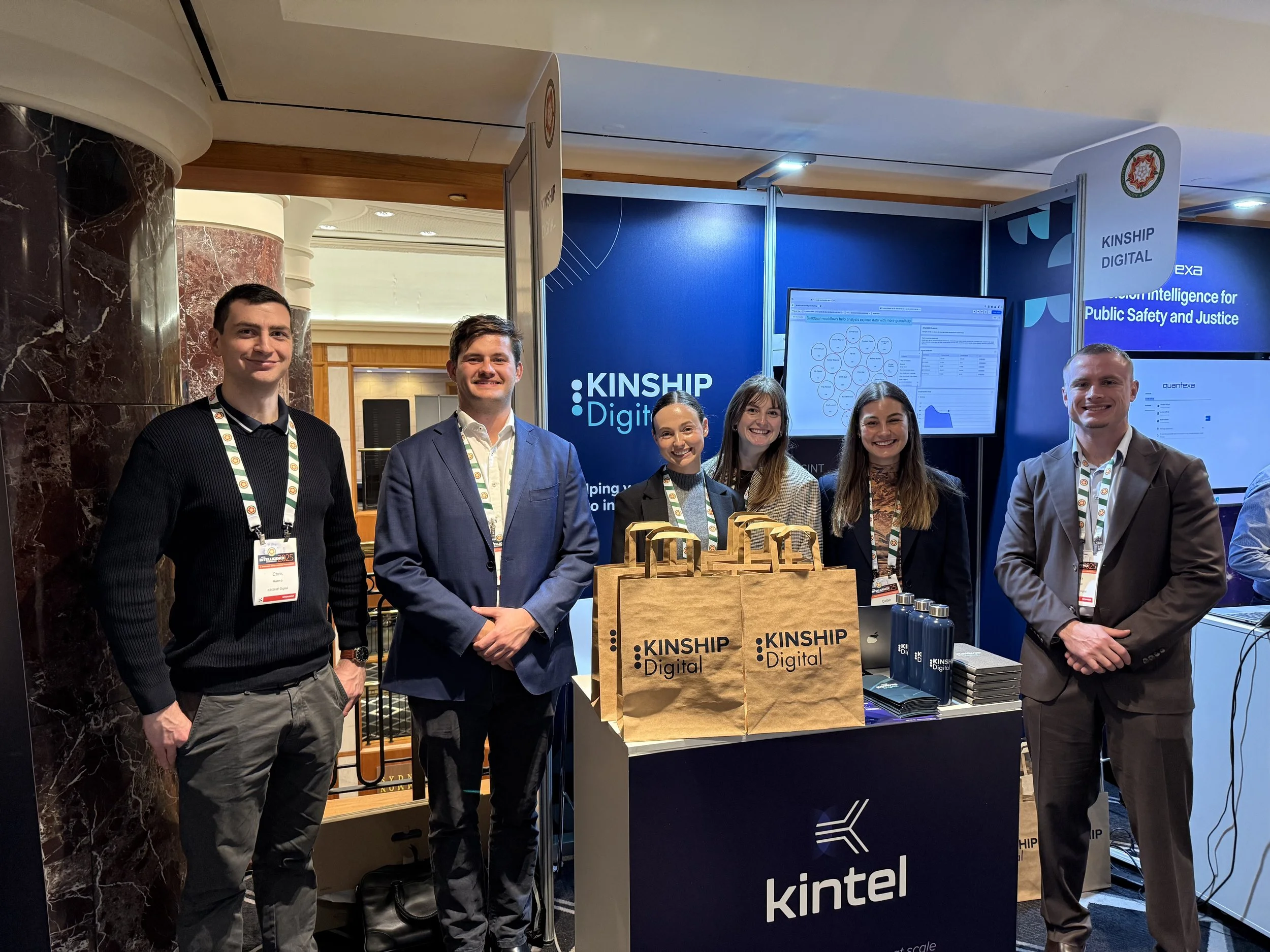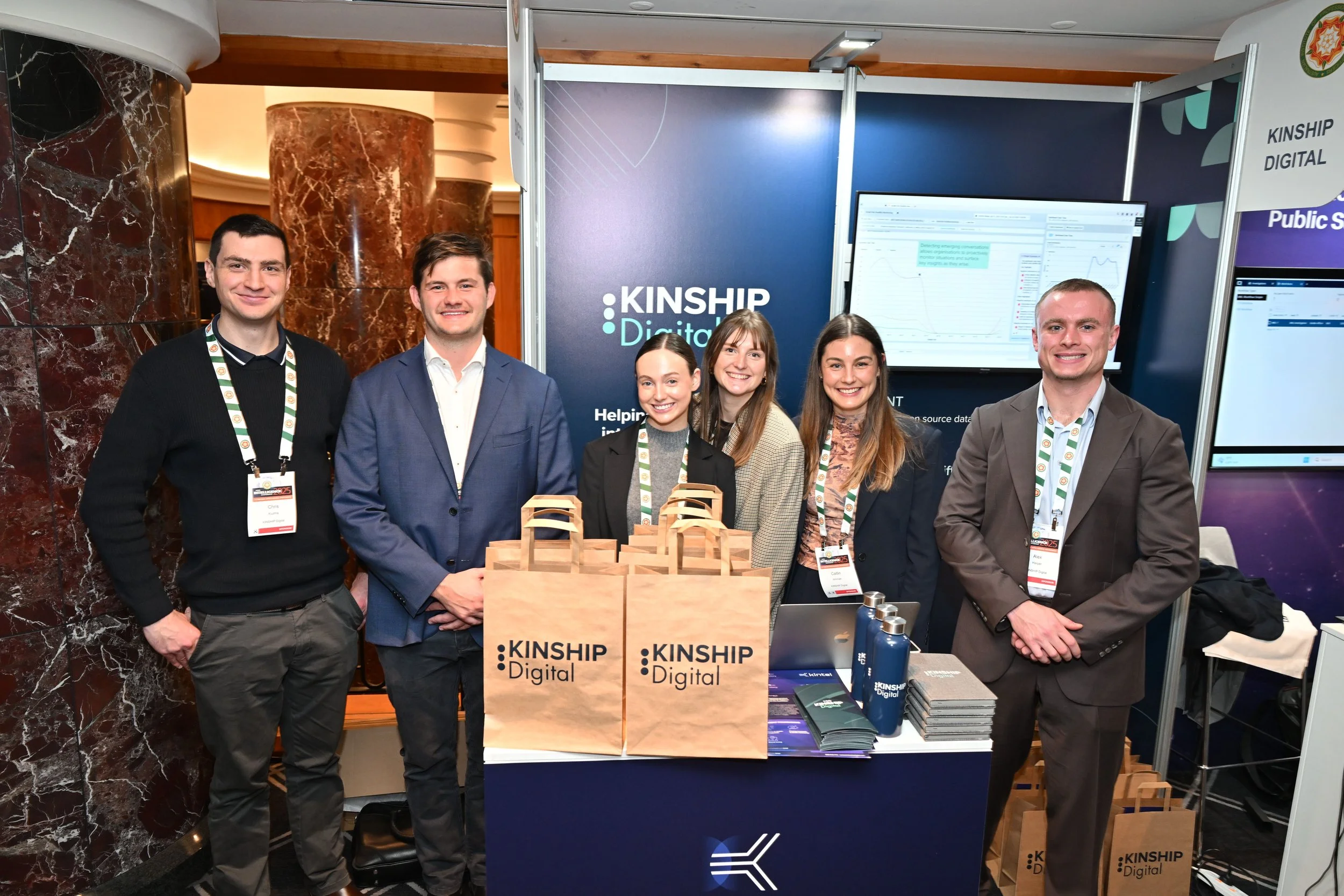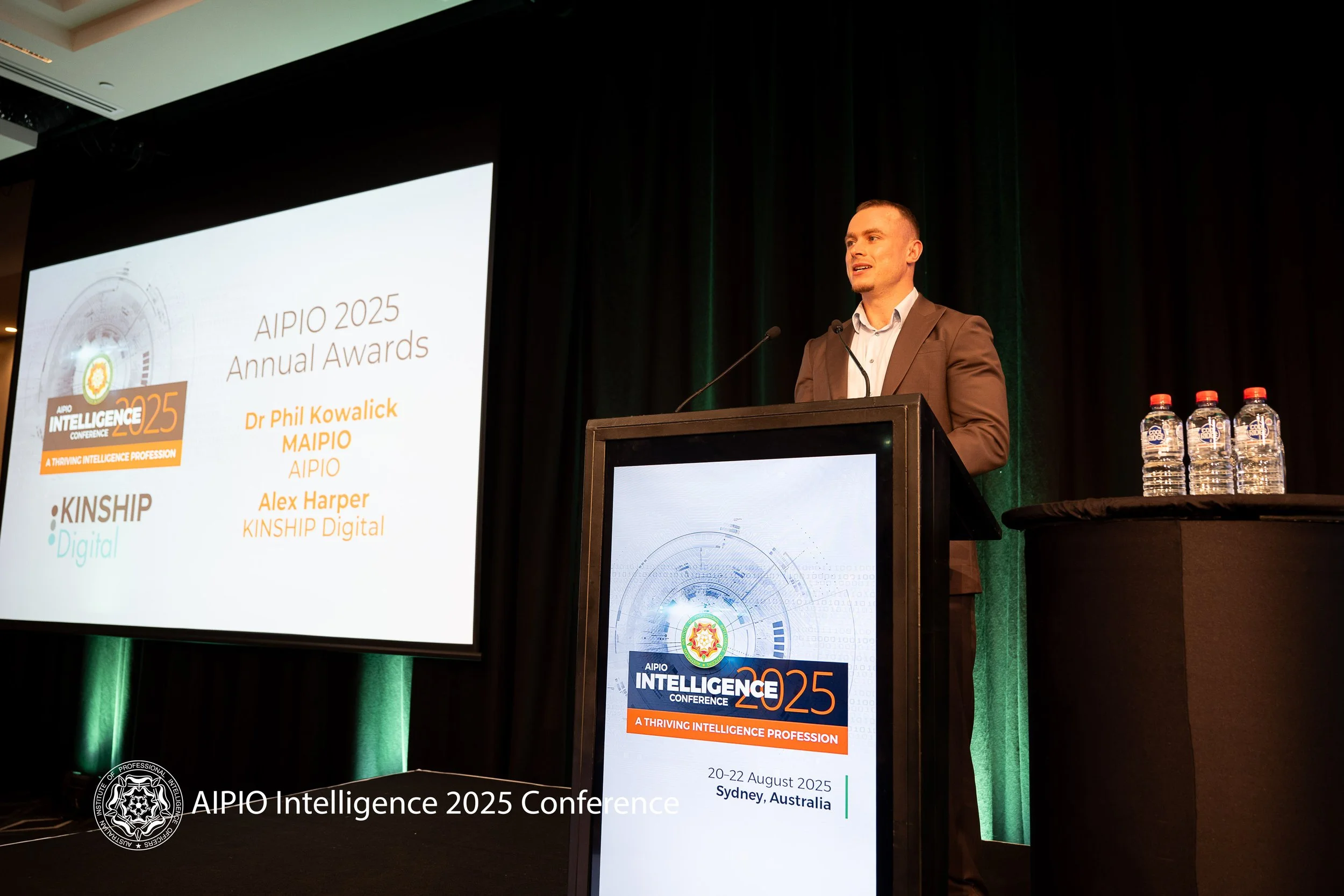A Recap on the 2025 AIPIO Conference “A Thriving Intelligence Profession”
Introduction
This year’s AIPIO Conference brought together intelligence professionals, academics, and corporate executives to explore the future of intelligence in an era of rapid change. Held in Sydney, the conference theme focused on “A Thriving Intelligence Profession” - a fitting reminder of the dynamic challenges shaping our field.
For our team, attending the conference was about learning from leaders in their fields, engaging in critical conversations, and understanding differing perspectives within the intelligence industry.
Key Themes and Takeaways
Across the three days, several recurring themes emerged that reflected the evolving landscape of intelligence.
The Integration of AI
Many discussions focused on the advancing capabilities of AI, and how this could affect the intelligence landscape in both positive and negative ways. Discussions centred around how, whilst AI can be immensely helpful in the automation of procedures and analysis, there will always be a need to have a human in the loop to ensure the information is accurate and relevant.
Cross-Sector Collaboration
Many speakers reinforced the notion that intelligence cannot exist in siloes, and partnerships between the public and private sectors are increasingly vital for resilience and knowledge sharing.
Adaptability in Complexity
Whether discussing geopolitics, security, or climate-related risks, one key point stood out – intelligence is and will continue to be a vital aspect of risk management. The ability of an agency or organisation to operate effectively during times of uncertainty or adapt to rapid context shifts is seen as a defining capability for the future.
Notable Speakers and Sessions
While all the sessions were immensely interesting, there were a few that left a lasting impression:
Leadership in Intelligence
Dr Phil Kowalick presented on Leadership in Intelligence, and highlighted how as the tradecraft evolves, so will the need for dynamic and inspiring leadership. He noted that whilst people can hold a preconceived idea of what working in intelligence entails, in order to inspire the next generation of intelligence professionals, it is essential to highlight how dynamic and broad the profession really is.
AI and Intelligence
A plenary session, hosted by Kathy Pherson, focused on how AI will not replace intelligence analysts – rather, it will reshape the way they think, collaborate, and add value. She explored how AI can become a capable assistant to intelligence professionals when paired with structured analytic tradecraft, and highlighted where AI supports the analyst, and where it may mislead. The session concluded with how to cultivate a resilient, ethical, and collaborative approach to human-machine learning, highlighting that it will likely be necessary for AI to be treated as a tool to uplift the analyst’s work.
Roundtable
A roundtable was held to facilitate discussions surrounding leadership, AI, and the next generation of leaders in the intelligence space. Interestingly, discussions were focused on how the intelligence profession can be seen as daunting and difficult to break into. Potential solutions ranging from diversifying the location of agencies to outside of Canberra, to introducing university courses aimed at facilitating a pathway into the profession, were discussed. Ultimately, the underlying consensus was that the profession is shifting at a rapid rate, and changes need to be made to account for newcomers entering the workforce.
Beyond the formal sessions and events, the conference was a great opportunity to get together with other like-minded intelligence professionals and share perspectives and experiences. We were grateful for the opportunity to educate others on the work that KINSHIP does and learn about the work others are doing to help propel the intelligence community forward.
What our team noted stood out the most was the diversity of voices – seasoned professionals, corporate executives and young emerging leaders were all present throughout the duration of the conference. This mix fostered engaging dialogue and again highlighted how intelligence thrives through collaboration.



